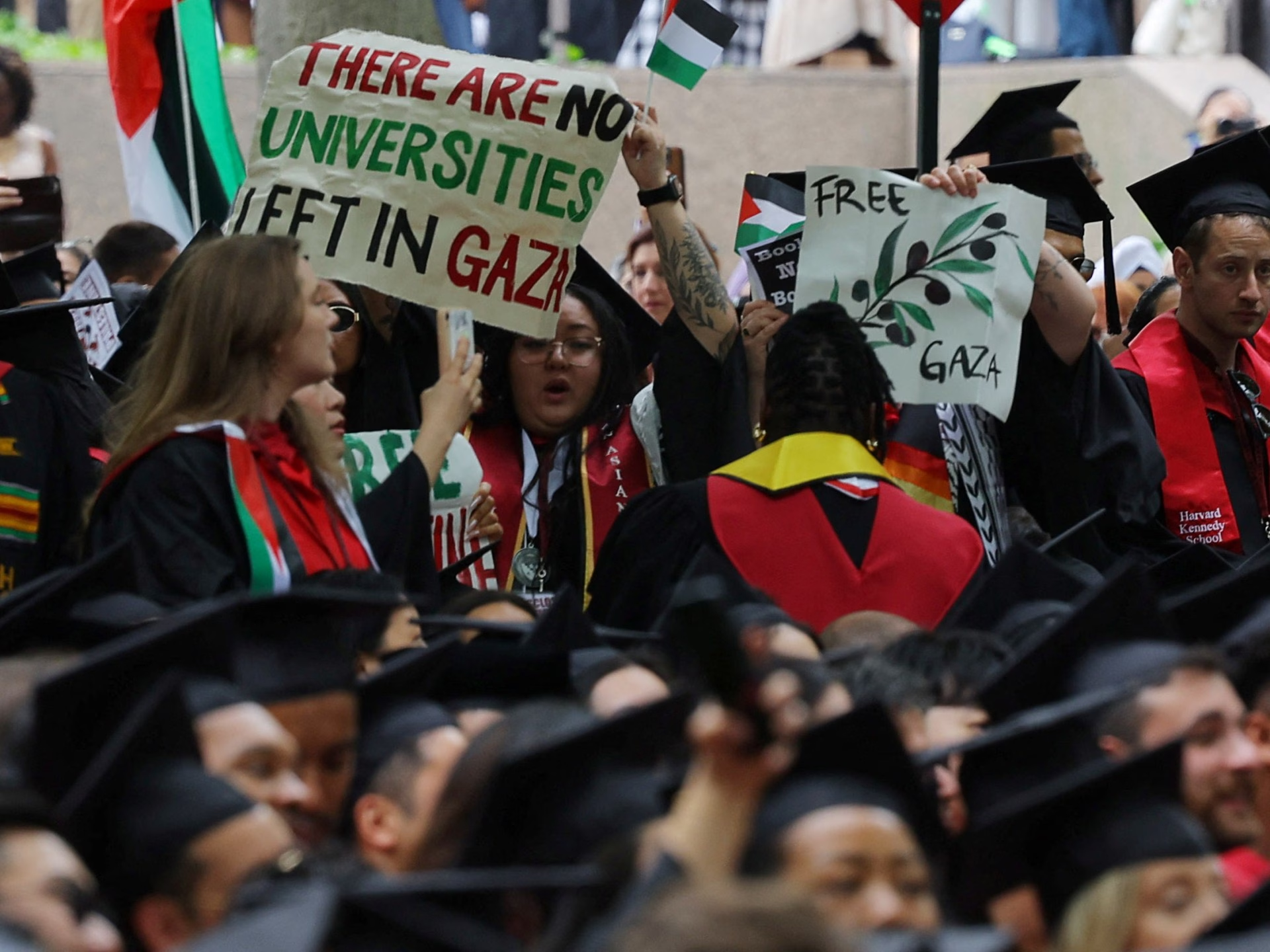This move parallels ongoing negotiations between the Trump administration and Columbia University over $400 million in federal funding for the Ivy League institution in New York. Although Columbia has agreed to several administration demands to maintain funding, the US government has not confirmed whether it will reinstate the paused contracts and grants.
Detailed information on the situation with Harvard:
Why is the Trump administration evaluating Harvard funding?
On Monday, a joint statement from the Department of Education, Department of Health and Human Services, and the General Services Administration indicated that they will inspect federal contracts and grants at Harvard University.
The statement also mentioned that the Joint Task Force to Combat Anti-Semitism will scrutinize $255.6 million in contracts between the federal government and Harvard and its affiliates, and more than $8.7 billion in multiyear grant commitments.
The Task Force was established following Trump’s January 29 executive order, “Additional Measures to Combat Anti-Semitism,” which the Department of Justice announced on February 3.
Though officially aiming to combat anti-Semitism following a global surge linked to Hamas’ attack on Israel, resulting in over 1,100 deaths and the subsequent conflict in Gaza claiming over 50,000 lives, the executive order has, in practice, laid the groundwork for the Trump administration to pursue the deportation of international students involved in pro-Palestine campus protests without clear evidence of anti-Semitism or pro-Hamas activities.
The order has also been used to target universities that the administration believes have inadequately responded to protests.
“The Task Force’s first priority will be to eliminate anti-Semitic harassment in schools and on college campuses,” the Justice Department stated.
According to Secretary of Education Linda McMahon, “Harvard’s failure to protect students on campus from anti-Semitic discrimination — all while promoting divisive ideologies over free inquiry — has put its reputation in serious jeopardy.”
McMahon added, “Harvard can rectify these issues and restore itself as a campus committed to academic excellence and truth-seeking, where all students feel safe.”
What occurred at Harvard?
On April 24, 2024, pro-Palestine student protesters established an encampment known as Harvard Out of Occupied Palestine (HOOP) in Harvard Yard, in solidarity with Palestinians in Gaza. This camp, among others at US universities, demanded, among other actions, that their universities divest from weapons companies and companies associated with Israel.
Following protests, Harvard President Alan Garber cited disruptions to educational activities and called for an end to the encampment, stating that while the right to free speech is vital, it is not limitless. On May 14, the university and student protesters announced an agreement to dismantle the encampment, but differences in statements emerged over the terms of the agreement, particularly regarding divestment from Israel.
Garber established task forces in January 2024 to combat anti-Semitism and bias against Muslims and Arabs, prior to the encampments. In March 2024, many Harvard Law School professors expressed concerns about the federal government’s actions targeting law firms and lawyers opposing the Trump administration’s stance.
Trump targeted law firms connected to Robert Mueller, investigating Russian involvement in Trump’s 2016 campaign, with orders aiming to restrict lawyers’ access to federal buildings and courts.
What would happen if Trump reduces Harvard’s funding?
In response to the Trump administration’s announcement regarding funding evaluation, Harvard President Garber released a statement on Monday.
“If this funding is halted, it will halt life-saving research and jeopardize important scientific research and innovation,” Garber stated.
However, the Trump administration suggested that Harvard was open to negotiations on their demands.
“We are pleased that Harvard is willing to engage with us on these goals,” said Sean Keveney, a Task Force member and acting Health and Human Services General Counsel, in the statement.
What happened at Columbia University?
Columbia became a focal point for pro-Palestine protests in 2024, after an initial encampment on April 17 inspired similar protests nationwide. Students occupied Hamilton Hall, leading to a crackdown by the New York police. In February, the Trump administration revoked $400 million in federal funding, citing a failure to protect Jewish students from anti-Semitic harassment.
In March, the federal government arrested Mahmoud Khalil, a recent Columbia graduate and key figure in the campus protests, pursuing his deportation. The same month, the US State Department revoked the visa of Ranjani Srinivasan, an urban planning PhD candidate, who then fled to Canada. Columbia subsequently unenrolled her.
Columbia accepted the government’s demands to restore funding, including requiring student protesters to present identification and banning face masks for concealment. The university also increased security and has a new senior provost overseeing departments offering courses on the Middle East.







